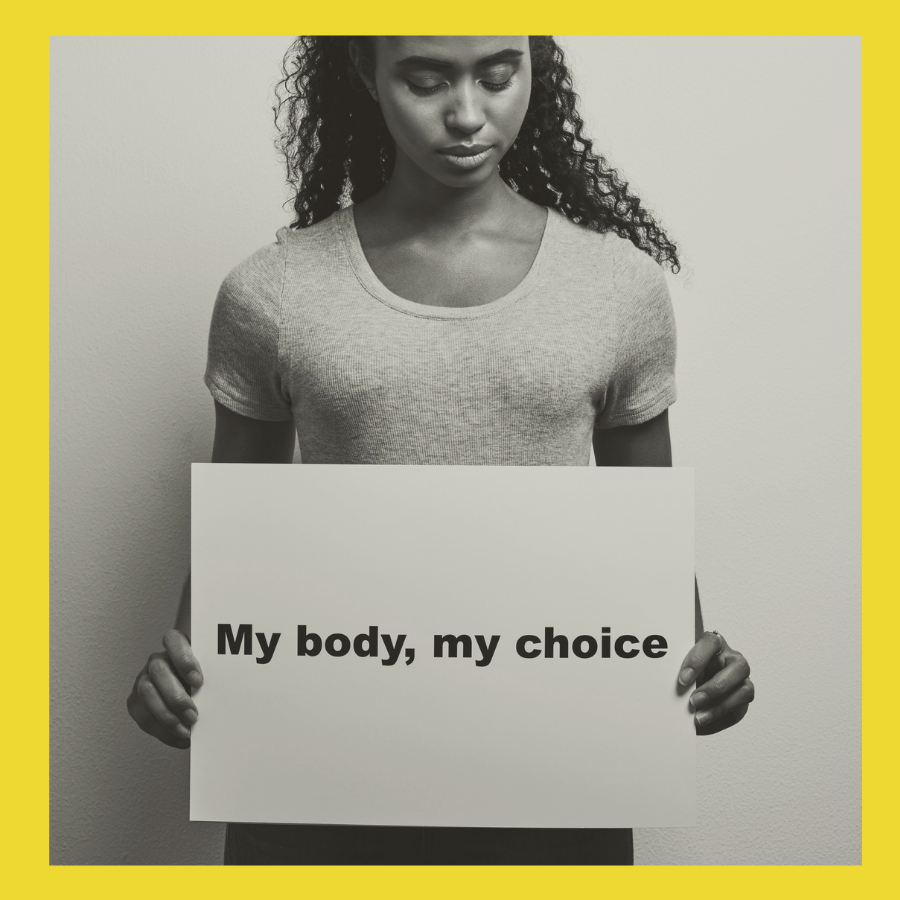For my entire life, Roe v. Wade has been a mantra. A given. The sort of thing you could always rely on, like death, taxes, and your child waking you up before your alarm.
Then Amy Coney Barrett was nominated and confirmed to the Supreme Court and the articles starting filling up my newsfeed: No longer was Roe v. Wade a thing we were protecting or maintaining. Instead, it was a thing we would inevitably lose. And so the question became: What next?
Roe v. Wade and Reproductive Rights
But first, a quick refresher for those who know nothing more than that Roe v. Wade is synonymous with abortion rights.
Basically, Roe v. Wade is a landmark decision made by the Supreme Court in 1973 in which it was ruled that the Constitution of the United States protects a pregnant woman’s freedom to choose to have an abortion without excessive government restriction.
This ruling came about thanks to the case of Norma McCorvey, who was known in her lawsuit under the pseudonym “Jane Roe.” When McCorvey became pregnant with her third child, she wanted an abortion. But she lived in Texas, where abortion was illegal except when necessary to save the mother’s life.
Her case eventually made it to the Supreme Court, where their decision struck down a number of U.S. federal and state abortion laws. The ruling stated that the U.S. Constitution provides a “right to privacy” that protects a pregnant woman’s right to choose whether or not to have an abortion. But it also ruled that this right is not absolute and must be balanced against the government’s interests in protecting women’s health and protecting prenatal life.
Ever since, people on both sides of the political aisle have been arguing about whether and to what extent abortion should be legal and who should make those decisions about its legality.
Abortion Opponents Have Been Playing the Long Game
Those in the thick of the reproductive rights game have always been aware of just how precarious Roe v. Wade is, and have basically been playing the longest game of whack-a-mole ever. But in the past year, and especially with the appointment of Barrett to the Supreme Court, the alarms have officially sounded.
Rewire News Group (RNG) in particular (a nonprofit media organization with a focus on reproductive rights which, spoiler alert, I sometimes write for) has been providing extensive coverage of the growing storm. In addition to their coverage of state-by-state abortion-related fights, in May, they ran a piece on the Supreme Court’s announcement that they were reconsidering abortion rights. A 2020 case out of Mississippi (Dobbs v. Jackson Women’s Health Organization), centering around a possible pre-viability ban on abortion, has made its way to the Supreme Court. We have at least a year before we know how they decide, but it only takes five justices to change a law. And with the addition of Barrett, the Supreme Court has its conservative majority. This could change the landscape of abortion rights as we know it.
Later in May, RNG published a horrifying glimpse into just how systematically conservatives have been working to overturn Roe v. Wade. The piece reports on the literal playbook developed by the conservative Christian law firm Alliance Defending Freedom three years ago, which lays out a strategy for enacting state-by-state abortion bans, eventually making Roe v. Wade irrelevant.
I would put the screaming face emoji here, as it is what best represents my own internal screaming, but I don’t want to seem flippant.
A New Book About the Abortion Fight and How to Save Our Reproductive Rights
If you’d like to delve even deeper into the history of abortion rights — while also looking toward the future — I highly recommend Controlling Women, a book by legal superheroes Kathryn Kolbert and Julie F. Kay. In this book, Kolbert and Kay emphasize why abortion rights are so important, give the backstory of Roe v. Wade and Planned Parenthood of Southeastern Pennsylvania v. Casey, and provide an overview of abortion-related litigation since then, including the varying tactics abortion opponents have used to strip us of our rights. They bring us all the way to the present-day, and to this extra-precarious position we now find ourselves in.
But they go beyond that, too. Approaching abortion rights from a human rights framework, they dream of a future (and a future amendment that would accomplish that future) in which, “[t]he rights to choose or refuse contraception, pregnancy, childbirth, and parenthood and to voluntarily engage in sex and make important decisions about marriage and family life would be explicitly protected,” and in which there would be governmental support of those rights.
How might we accomplish that? Kolbert and Kay have some ideas.
The final few chapters in their book lay out suggestions any of us can run with, from who we elect (and how we support those candidates) to which abortion restrictions we seek to eradicate to the reproductive rights we aim to bolster. The latter includes healthcare for all, the reduction of maternal and infant mortality rates, increased access to contraception, sex ed for all, greater support for mothers, and so on.
Abortion opponents have their playbook. Here’s ours.
We loved this book so much we gave it away as a prize during the #FBCReadathon.
And I would be remiss if I didn’t mention Robin Marty’s New Handbook for a Post-Roe America (the second edition) and Meera Shah’s You’re the Only One I’ve Told, which shares 17 different abortion stories in an attempt to further humanize an issue that often gets lost in controversy.
And a refresher on the reproductive justice movement is also relevant here.
There’s no time to wait and see what the Supreme Court decides in a year. We need to start fighting now.


